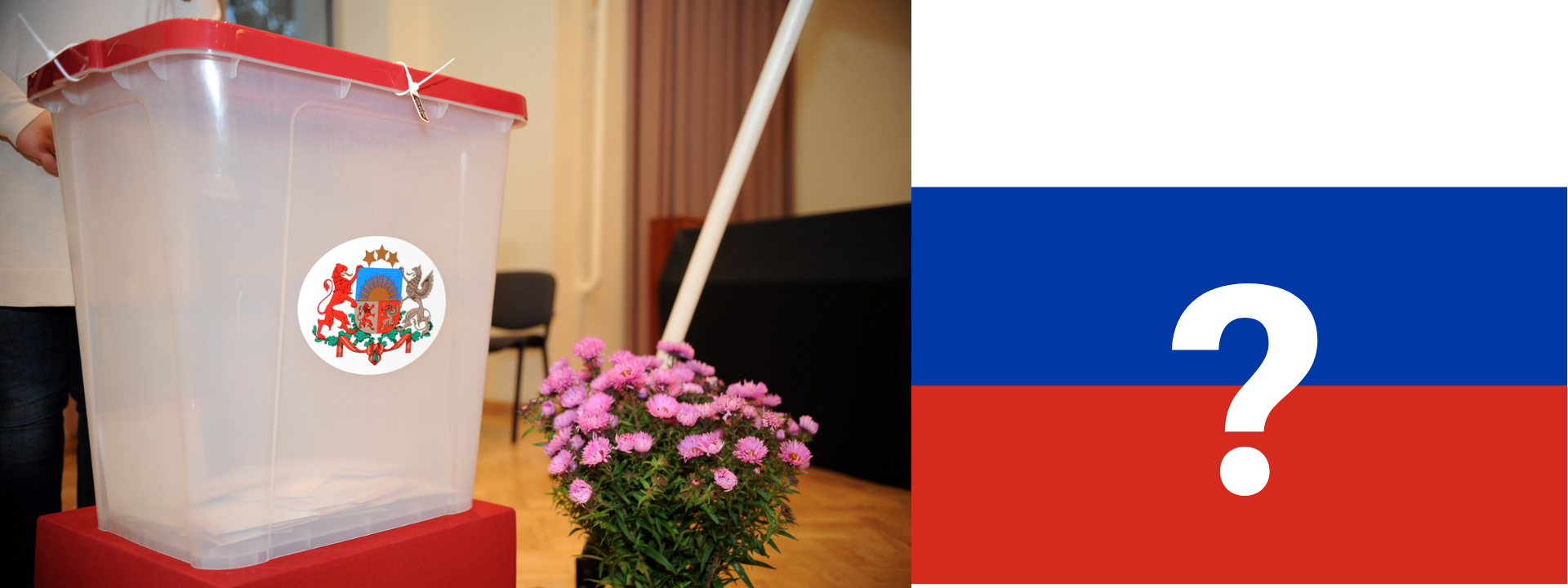#ElectionWatch: The “Russian Factor” in Latvian Elections
How the fear of Kremlin influence affected pre-election campaigns in Latvia
#ElectionWatch: The “Russian Factor” in Latvian Elections

How the fear of Kremlin influence affected pre-election campaigns in Latvia

[facebook url=”https://www.facebook.com/konservativie/videos/jura%C5%A1s-maks%C4%81tnesp%C4%93jas-oligarhu-mafija-p%C4%93rk-politi%C4%B7us/” /]
In the video he said:
Have you noticed who the conservative ZZS, liberals from Vienotiba and nationalists from NA target? Not the loud and radical LKS. [..] Kaimins’ party [KPV LV] is dangerous. It is the third most popular party after Saskana and ZZS. In case the first will find a common language with the third, they will get enough seats to make a parliamentarian majority.
Zubarev’s show is pro-Saskana. In another episode, published on September 24, Zubarev defended Saskana against LKS. He mentioned the negative reporting about Saskana published on Sputnik Latvia and Baltnews.lv, justified Saskana’s inaction to change the government’s decision to have Russian schools begin teaching in Latvian, and mocked one of the LKS’s leaders, Andrejs Mamikins. The episode also included Vjaceslavs Dombrovskis, the Saskana’s prime minister candidate, explaining how to increase pensions significantly.
The video was later promoted on Saskana’s Facebook page and shared by PBK’s Facebook page.

A privately owned Latvian business newspaper Dienas Bizness (DB or “Business of the Day”) also demonstrated a positive bias towards KPV LV and Saskana while a negative one towards the current government and other competing parties.
Since June this year, DB started a section of feature articles and front-page articles. It was about the same time when the official pre-election campaigning started. @DFRLab analyzed the featured content. Out of 50 opinion articles, 40 were written by Sandris Točs, the former press officer of Saskana’s leader Nils Usakovs. @DFRLab categorized his articles.

The results of the content analysis showed that Točs is promoting Saskana and KPV LV, as well as collaboration with Trump’s America and business with Russia. The negative sentiment was directed at the current government, business insolvency administrators, George Soros, Swedish banks, the current Minister of Finance Dana Reizneice-Ozola who represents ZZS, the ruling party in the parliament, and four competing parties — Jauna Vienotiba, JKP, Attistibai/PAR! and NA. Most of these parties signed a memorandum of non-co-operation with pro-Russian parties, or refused to form coalition with Saskana.
Točs and DB’s owner Janis Marsans was spotted meeting an alleged Latvian oligarch Ainars Slesers, who has openly promoted business cooperation with Russia and U.S. on Sputnik Latvia.
A week before elections DB spread free copies of the newspaper featuring the prime minister’s candidates from Saskana and KPV LV.

The posts reads in Latvian:
Dienas Bizness has obviously expanded its gigantic subscription campaign. Me and all my neighbors have received a special double business number for Dienas Bizness, where the only topic is the upcoming election. In short, over-the-counter analysis shows that Harmony and KPV LV are supported, while others are criticized, in addition to the absolutely “yellow” spirit. The only author is Sandris Tocs. I am shocked that a masters’ name is now considered to be an impartial objective for political games, and the question is: what is the reason why an attempt is made to buy seats for the Saeima for these two forces? Which interests will they represent in the next Saeima if they are advertised in such an unwanted way? How does KNAB consider this promotional material in party campaign publications?
I hope that the readers of the Dienas Bizness will appreciate this “subscription” share, without further notice, if they have important objective journalism.
The Corruption Prevention and Combating Bureau of Latvia (KNAB) started an investigation based on suspicions for concealed political advertisement.
Conclusion
Political parties like NA and Jauna Vienotiba took an active stances on a principle of no-cooperation with pro-Russian parties, especially Saskana. Parties that were less clear about their cooperation with Saskana were ZZS and KPV LV.
Two media outlets — PBK’s TV show Za Kadrom and DB — promoted coalition between Saskana and KPV LV while spearing political competition.
The evidence suggests that there are rather internal attempts to promote political parties that are more in favor of a cooperation between Latvia and Russia.
Follow along for more in-depth analysis from our #DigitalSherlocks.

